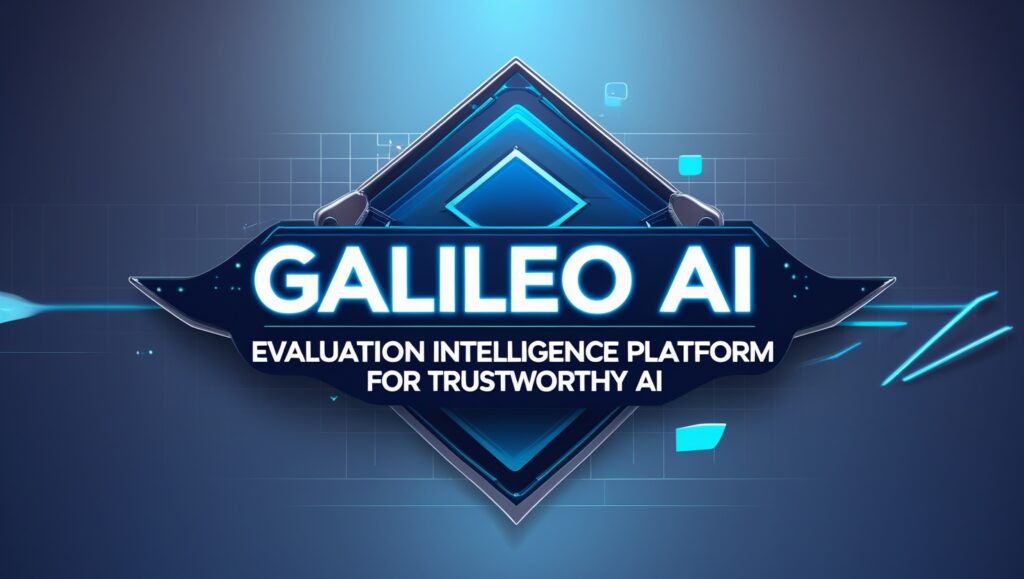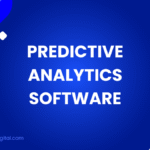
Artificial intelligence has transformed how businesses operate, from automating customer service to powering recommendation engines. Yet behind every AI system lies a critical question: How do we know if our models are actually working as intended?
This challenge becomes even more complex when AI systems make decisions that affect real people’s lives—approving loans, diagnosing medical conditions, or filtering job applications. A single misclassified prediction or biased output can have serious consequences for both users and businesses.
Enter Galileo AI, an evaluation intelligence platform designed to help organizations build more trustworthy AI systems. By providing comprehensive tools to test, monitor, and validate machine learning models throughout their lifecycle, Galileo AI addresses one of the most pressing challenges in modern AI deployment: ensuring models perform reliably and fairly in production environments.
This comprehensive guide explores how Galileo AI works, its key features, and why evaluation intelligence has become essential for organizations serious about responsible AI deployment.
What Is Evaluation Intelligence?
Evaluation intelligence represents a new category of AI tooling that goes beyond traditional model metrics. While accuracy, precision, and recall provide useful snapshots of model performance, they don’t tell the complete story of how AI systems behave in real-world scenarios.
Evaluation intelligence platforms like Galileo AI provide deeper insights into model behavior by analyzing:
- Data quality issues that could compromise model performance
- Bias detection across different demographic groups or data segments
- Edge case identification where models are most likely to fail
- Performance drift as models encounter new data over time
- Explainability metrics that help teams understand model decision-making
This holistic approach to model evaluation helps AI teams catch problems before they impact users and business outcomes.
Core Features of Galileo AI
Comprehensive Data Analysis
Galileo AI starts by examining the foundation of any AI system: the data. The platform automatically identifies potential data quality issues that could undermine model performance:
- Duplicate records that might lead to data leakage
- Missing values that could introduce bias
- Outliers that might confuse model training
- Label inconsistencies that reduce model reliability
- Distribution shifts between training and production data
By catching these issues early in the development process, teams can address data problems before they become model problems.
Advanced Bias Detection
One of Galileo AI’s standout features is its sophisticated bias detection capabilities. The platform analyzes model outputs across different subgroups to identify potential unfair treatment or discrimination.
This includes testing for:
- Demographic parity to ensure equal positive prediction rates across groups
- Equalized odds to verify consistent true positive and false positive rates
- Individual fairness to check that similar individuals receive similar predictions
- Counterfactual fairness to test whether changing sensitive attributes affects outcomes
These bias checks help organizations meet regulatory requirements while building more equitable AI systems.
Real-Time Model Monitoring
Once models are deployed, Galileo AI continues monitoring their performance through continuous evaluation. The platform tracks key metrics and alerts teams when models begin to drift or degrade.
Monitoring capabilities include:
- Performance trend analysis over time
- Automatic alerting when metrics fall below thresholds
- Root cause analysis for performance issues
- A/B testing framework for model comparisons
- Integration with existing MLOps pipelines
This ongoing monitoring ensures models maintain their effectiveness as business conditions and data patterns evolve.
Explainability and Interpretability
Understanding why models make specific decisions is crucial for building trust with stakeholders and end users. Galileo AI provides multiple levels of model explainability:
- Global explanations that show which features matter most overall
- Local explanations for individual predictions
- Counterfactual analysis showing how changing inputs affects outputs
- Feature importance rankings across different data segments
- Decision boundary visualization for classification problems
These explainability tools help teams communicate model behavior to non-technical stakeholders and debug unexpected results.
Benefits for AI Development Teams
Faster Problem Resolution
Traditional approaches to AI debugging often involve manually analyzing model outputs and data samples. Galileo AI automates much of this analysis, helping teams identify and resolve issues in hours rather than days or weeks.
The platform’s automated issue detection and root cause analysis capabilities mean teams spend less time hunting for problems and more time solving them.
Improved Model Reliability
By catching issues early and monitoring performance continuously, Galileo AI helps teams deploy more reliable AI systems. This reduces the risk of model failures that could damage business operations or user trust.
The platform’s comprehensive testing framework ensures models work correctly across different scenarios and edge cases before they reach production.
Enhanced Collaboration
Galileo AI provides shared dashboards and reporting tools that help different stakeholders understand model performance. Data scientists can dive deep into technical metrics, while product managers and business leaders can focus on higher-level performance indicators.
This shared visibility improves collaboration between technical and business teams, leading to better alignment on AI initiatives.
Regulatory Compliance
As AI regulation continues to evolve, organizations need tools to demonstrate their models operate fairly and transparently. Galileo AI’s bias detection and explainability features help teams document model behavior and comply with emerging regulatory requirements.
Implementation Considerations
Integration with Existing Workflows
Galileo AI is designed to integrate with popular machine learning frameworks and MLOps tools. The platform supports common model formats and can be incorporated into existing CI/CD pipelines without major workflow changes.
Teams can start by evaluating specific models or datasets, then gradually expand to comprehensive monitoring across their AI portfolio.
Technical Requirements
The platform operates both as a cloud service and on-premises deployment, depending on organizational security and compliance requirements. Integration typically requires:
- API access to model endpoints
- Sample datasets for analysis
- Configuration of monitoring thresholds and alerts
- Training for team members on platform features
Cost-Benefit Analysis
While evaluation intelligence platforms represent an additional investment, the cost of model failures often far exceeds the price of prevention. Organizations should consider:
- Potential revenue loss from model failures
- Regulatory fines for biased or unfair AI systems
- Reputation damage from AI mishaps
- Time savings from automated debugging and monitoring
Most organizations find that comprehensive model evaluation pays for itself through improved reliability and faster problem resolution.
The Future of AI Evaluation
As AI systems become more complex and widespread, the need for sophisticated evaluation tools will only grow. Emerging trends in AI evaluation include:
- Federated evaluation for models trained on distributed data
- Adversarial testing to identify potential security vulnerabilities
- Continuous learning integration that adapts evaluation criteria as models evolve
- Multi-modal evaluation for AI systems that process different types of data
Platforms like Galileo AI are positioning themselves at the forefront of these developments, helping organizations stay ahead of evolving AI challenges.
Making AI More Trustworthy
Galileo AI represents an important step forward in making artificial intelligence more reliable and trustworthy. By providing comprehensive tools for data analysis, bias detection, performance monitoring, and explainability, the platform helps organizations deploy AI systems with confidence.
The key to successful AI deployment isn’t just building accurate models—it’s ensuring those models work reliably, fairly, and transparently in real-world conditions. Evaluation intelligence platforms make this possible by providing the visibility and tools teams need to understand and improve their AI systems.
For organizations serious about responsible AI deployment, investing in evaluation intelligence isn’t optional—it’s essential. As AI continues to play a larger role in business and society, the tools we use to evaluate and monitor these systems will determine whether we can trust them to make decisions on our behalf.

I am Ray Jones Digital
My current occupations: a Digital Marketer, Local SEO expert, Link Builder, and WordPress SEO specialist. Shopify SEO, Ecommerce Store Management, and HTML & WordPress Developer I have been practicing the above mentioned services for more than 10 years now As an SEO expert working with your ongoing projects.



